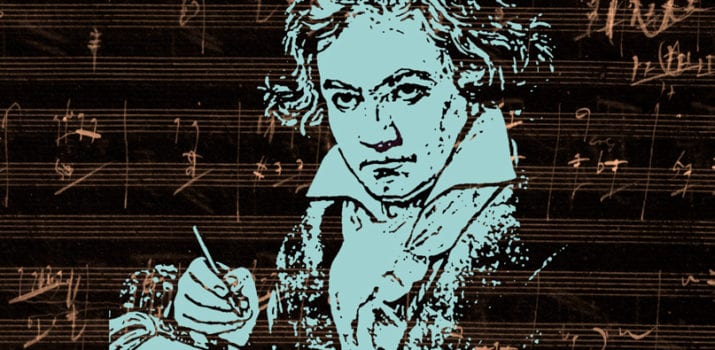Beethoven, creative vitality vs. deafness (4/7)


The greatest thorn in Beethoven’s side was deafness, which accompanied a character already prone to emotional excess, extravagance and emotional change. As early as 1798, the composer realized that this infirmity would prevent him from expressing his talent as a performer. Fortunately, his creative vitality did not suffer. Beethoven devoted himself to composition with great strength of character, and overcame his ordeals by celebrating the triumph of heroism and joy in his music.
The joyous Second Symphony dates from 1801-1802, the heroic Third from 1802, and the famous Ninth, a musical evocation of the triumph of joy and brotherhood over despair, from 1824.
An anecdote about the premiere of his Ninth Symphony tells us that on May 7, 1824, despite having been totally deaf for 4 years, the composer shared the baton with Michael Umlauf, Kapellmeister, as conductor of the orchestra. The symphony was a triumph. The audience applauded and shouted, but Beethoven was oblivious, his eyes glued to the score and a few bars behind. Then contralto Caroline Unger approached him, took his hand and turned him around to receive the audience’s cheers. To this sensational and general exultation, Beethoven, embarrassed, thanked her with a curtsey.
Take advantage of Medici.tvMedici.tv, accessible on the BCUL’s public terminals or remotely via crypto for UNIL members, features a number of concerts, documentaries and master classes dedicated to Beethoven.
Federica, Musicology Manager, Riponne site